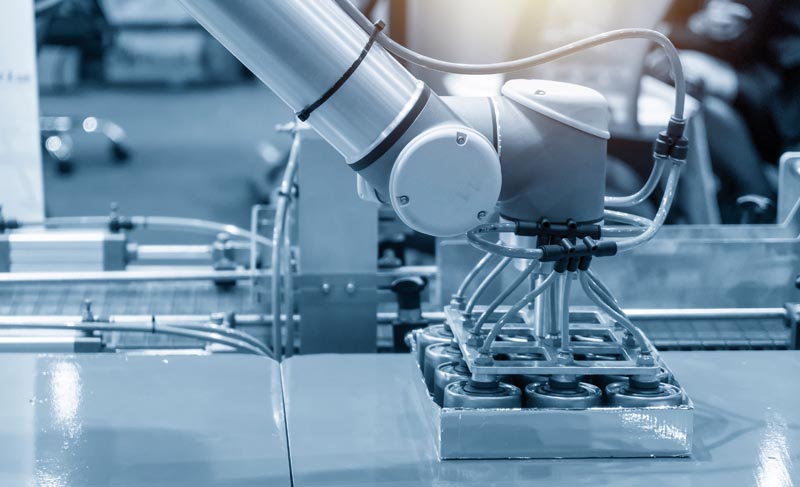Basque Food Industry 4.0 Diagnosis
Visualisation of the level of introduction of the 4.0 transformation in different areas of the companies’ business, such as the production process, connectivity with the chain, consumer experience, human resources and strategy and organisation.

AZTI has carried out an exhaustive sectoral diagnosis in order to assess the degree of implementation of different 4.0 technologies, as well as the needs and barriers that exist in this area in the Basque food sector as a whole. This diagnosis aims, in a quantifiable and objective way, to visualise the level of introduction of the 4.0 transformation in different areas of the companies’ business, such as the production process, connectivity with the chain, consumer experience, human resources and strategy and organisation. For this purpose, different technical aspects relating to each of these areas have been consulted.
Results
The results shown below are general, obtained from the survey of 205 companies in Bizkaia, Araba and Gipuzkoa, belonging to the different sectors within the Basque food industry. In other words, these are results in which no type of classification or segmentation was made according to aspects of the companies that could have an impact on the state of implementation of this transformation. In general, among other results, we find that (see figure):
- There is still a great lack of knowledge about what smart industry or 4.0 is.
- Data collection and storage is still mostly done manually.
- Only 27% use data to inform and take actions and adjustments on a continuous and real-time basis.
- Connectivity between chain actors remains low, with most information exchange done manually or semi-automatically, except for financial management, which is done automatically by 54%.
- In terms of customer experience, 54% of companies still only have a physical shop with no online connection whatsoever. Interaction with the consumer is still not great and only 15% use digital information generated by consumers to make decisions on their product or business.
- Companies are aware that they need training to adapt their employees’ profiles to this new reality, and 81% of the companies surveyed plan to train their employees, but only 14% are considering incorporating new employee profiles in this area.
- The barriers and triggers faced by companies are important when implementing 4.0 tools. As main barriers, companies identified the lack of funds for digital research, not knowing how to approach the transformation and the lack of knowledge of digital technologies. As the main triggers for implementing 4.0 tools in their environment, companies cite process efficiency improvement, cost reduction and raw material optimisation.
- Thirty-three percent of companies admit that they intend to invest in these tools in the near future.
In general, with this diagnosis, the level of implementation of 4.0 technologies in the agri-food industry is at a beginner’s level. This does not mean that companies lack automation or are not up to date, but rather that they are not generating or sharing objective data in an optimal way to obtain useful and connected information. Furthermore, we must take into account the high degree of atomisation of Basque food companies. Specifically, 51% of the companies surveyed had fewer than 10 employees, which may also be having an impact on this general diagnosis. For this reason, in the coming months a more accurate diagnosis will be drawn up, taking into account other factors such as sector or company size, among others.

